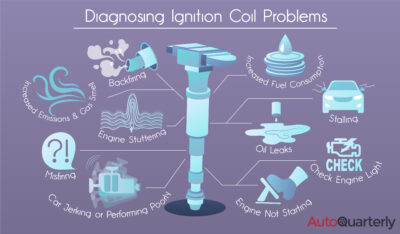Combustion engines remain the most popular method of enabling our cars to take us from point A to point B. In a typical car engine, each of the engine’s cylinder has a dedicated spark plug, which is connected to ignition coils.
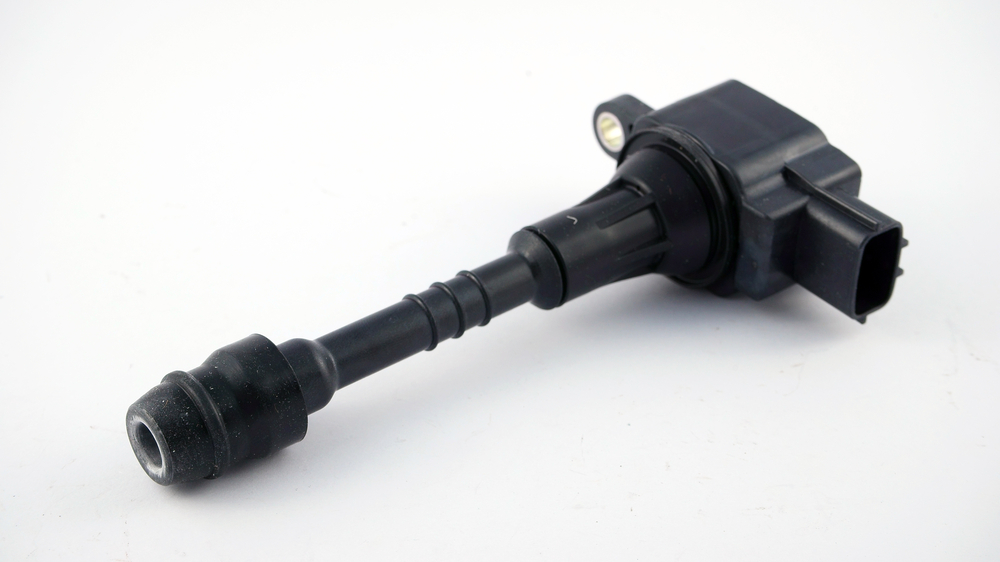
They’re called “combustion engines” because their spark plugs light up the fuel, resulting in controlled micro-explosions, which make the pistons in the cylinders move. And that’s how they turn heat to motion.
The spark plugs need tens of thousands of volts to create large enough sparks for the fuel to ignite. If you look at the average car’s battery, though, it can’t provide over 12 volts of electricity.
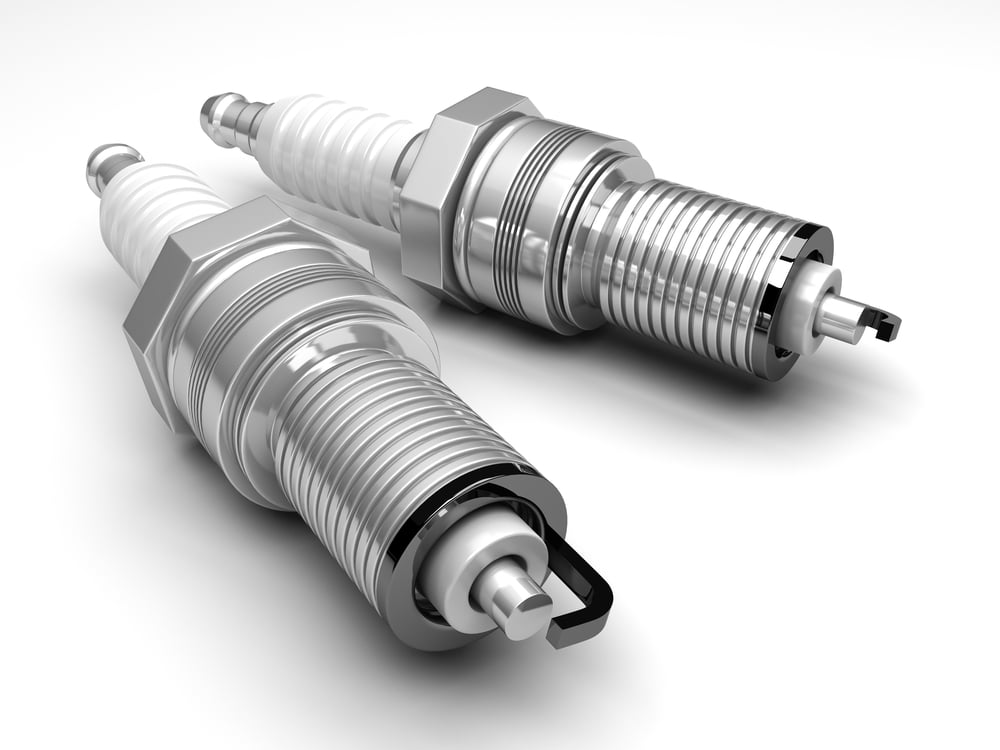
Ignition coils work as compact step-up electrical transformers. They “boost” the low current from the battery to the high levels needed from the spark plugs to ignite the fuel. When, for some reason, they can’t perform as expected, neither can your car.
How Long Do Ignition Coils Last?
Thankfully, you’ll rarely have problems with your ignition coils, since they last a long time. Modern ignition coils can last up to 100,000 miles. It’s suggested you change them after that point, or they may become difficult to remove in the future.
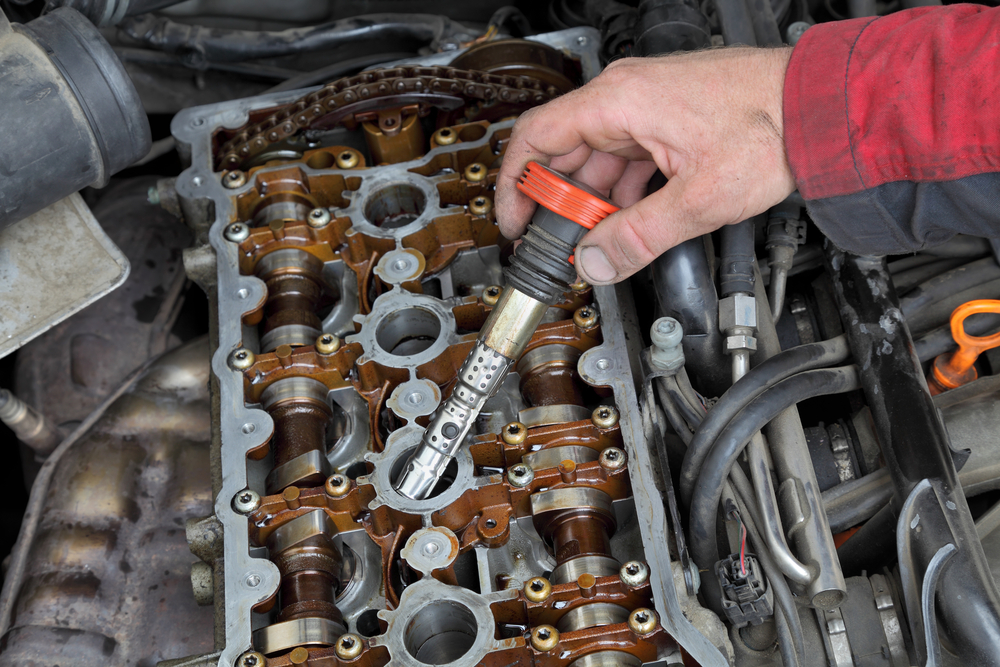
Nothing is perfect, though, and even those long-lasting electrical wonders might get damaged or wear out. For example, the fuel you’re using might have a richer or lighter mixture than optimal for your car’s engine. A mix lacking in energy content can make the spark plugs work overtime, and the opposite can lead to increased production of heat. In the long run, both can lead to problems.
Diagnosing Ignition Coil Problems
How can you tell, though, that a spark plug is failing, or is already bad and in need of replacement? Since the problem can get progressively worse, and the damage can escalate, it’s suggested you deal with it as soon as noticed. If you see any of the following signs, it’s time for an ignition coil replacement.
Backfiring
The Fast & Furious series of movies is Hollywood entertainment. Unlike what we see in those action extravaganzas, a car engine that sounds like it’s exploding, and black fumes coming from the exhaust, are not signs of “a cool ride.” They can be, though, signs your ignition coils are malfunctioning. If they can’t ignite the fuel smoothly and continuously, the result will be leftover fuel leaving through the exhaust.
Increased Emissions & Gas Smell
You’ll be able to feel your car backfiring while in the driver’s seat, but you’ll have to get out to notice two other, closely-related problems. Since unused fuel might leave the engine through the exhaust, if the engine is off and cold, you might be able to smell it. If it’s on, you might also see increased emissions, some times as black smoke.
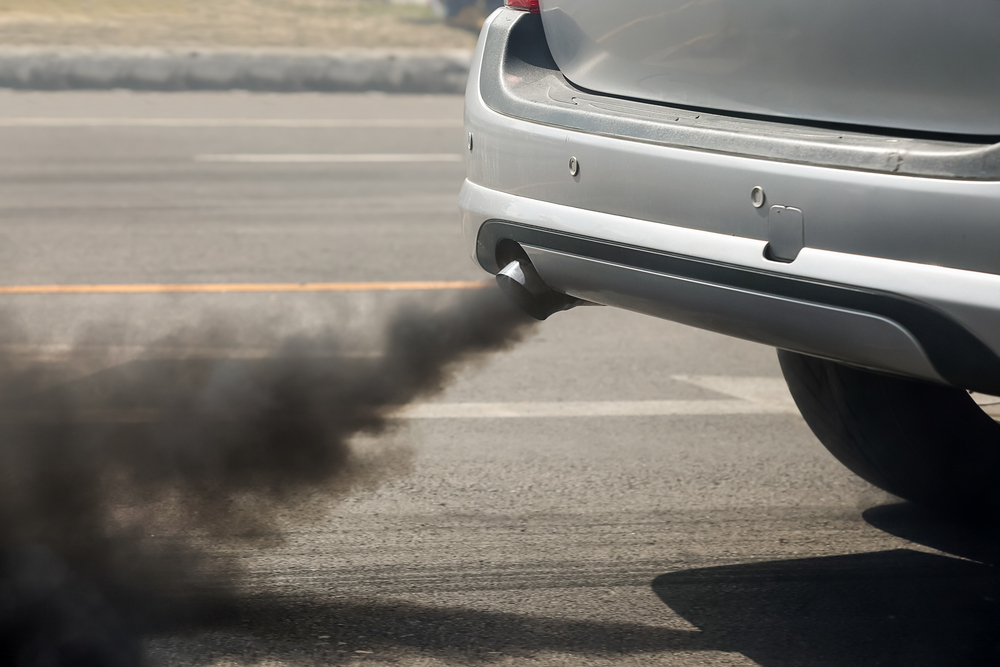
Misfiring
Does your car engine sound like it caught a cold? Does your car respond jittery to your input? If when speeding it moves more like jumping between points, you feel increased vibrations when stopped and idling, or your engine is starting slowly, you should check your ignition coils.
Engine Stuttering
If you’re familiar enough with your car, you know how “it feels,” and the typical vibrations that come with driving it. You can usually tell there aren’t any problems, by those vibrations being steady, smooth. The opposite, erratic bursts of waves at random intensities, are also signs of trouble for your ignition coils.
Car Jerking or Performing Poorly
If your car is jerking when it starts moving and shows lower power levels while driving, an ignition coil might be considering retirement. The vehicle might accelerate much slower and respond to your input as if tired.
Increased Fuel Consumption
Are you visiting the gas station more often, and have noticed your car’s fuel consumption going up? Its engine might be using more fuel while compensating for a failing ignition coil’s reduced performance.
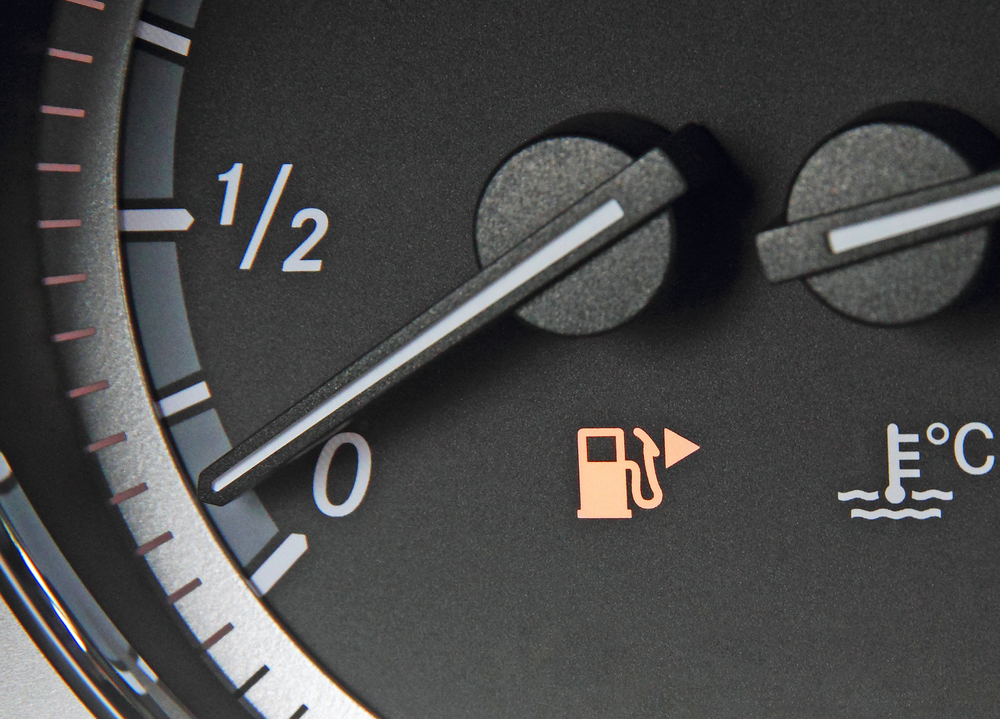
So, if your mileage has drastically decreased lately, it’s time for a check-up of the ignition coils.
Stalling
If a failing ignition coil can’t provide the spark plugs with a constant stream of electricity, you may feel your car stalling while driving. The rate at which the problem appears can be related to how damaged your ignition coil is. As it gets worse, the vehicle will stall more, and, eventually, the engine won’t start at all. You might see your car stalling both while driving and when stopped, and in the second case, the engine could even stop while idling.
Oil Leaks
Oil leaks can be an unfortunate result of an unnoticed ignition coil failure. By overheating, an ignition coil can lead to cracks in its oil-filled housing. Such cracks may allow the oil to leak from the engine.

If there’s a pool of oil on your usual parking spot, you’ll probably have to give your repair shop a call.
Check Engine Light
If you notice the engine light flashing or staying lit on your car’s dashboard, one of the possible reasons might be a bad ignition coil. Usually, if this light turns and stays on, your car’s computer has already detected one of the previous signs. You should pay a visit to your car mechanic, who’ll use an ODB scanner to check your car engine’s status logs and locate the problem.
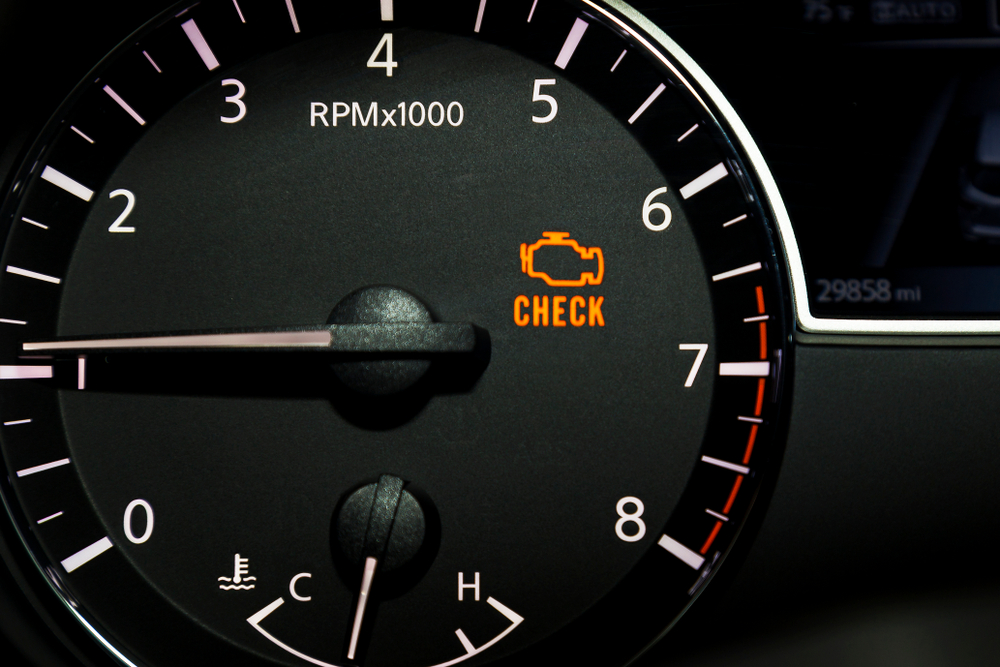
Engine Not Starting
When your car engine relies on a single engine coil, if it fails, your whole engine fails. If the problem progresses to a complete failure, the ignition coil won’t be able to provide electricity to the spark plugs, which won’t ignite the fuel. The result will be equivalent to a “dead” engine that will refuse to start, usually with a rattling, guttural noise.
Should I Replace All Ignition Coils If One Fails?
If your car uses more than one ignition coils, and only one of them goes bad, theoretically, you can only change the faulty one. Practically, though, it’s suggested you change all of them together.
A newer ignition coil may perform better than the rest. For some engines, this might translate into a power imbalance between the spark plugs. In turn, the car’s computer might record this as a problem.
Plus, if one of your ignition coils with the same age, mileage, and wear and tear fails, the rest will probably follow.
How Can I Tell Which Ignition Coil Is Bad?
If you’re a fan of DIY, and your car’s manufacturer didn’t make it hard, you can check your ignition coils by yourself.
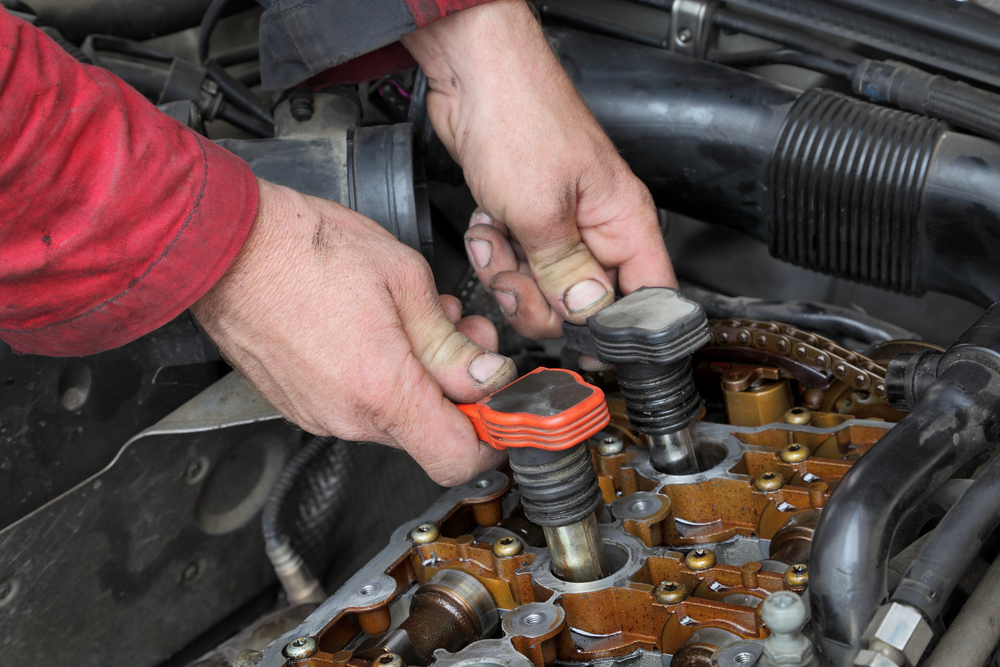
ALT TEXT: You can find and replace the bad coil by yourself – but we don’t suggest it.
The easiest way is by using an ODB scanner. If you don’t have access to one, you can do it the old-fashioned manual way. The short version is this:
- Leave your car engine running.
- Find the ignition coils.
- Touch their housing to feel for vibrations.
- If one seems to underperform (or not at all) compared to the others, it’s probably the faulty one.
- Disconnect the problematic ignition coil.
- Your engine should keep going as it was, without any felt drop in its already reduced performance, or shutting down.
- If it didn’t, you disconnected one of the working coils. Try the others.
We should stress that toying with your car’s engine can be dangerous if you don’t know what you’re doing. If you don’t feel comfortable dealing with the problem by yourself, it’s better to ask a professional mechanic for assistance.
What Do I Do After an Ignition Coil Goes Bad?
Just like the problems from a failing ignition coil might escalate, so can the resulting damage. That’s why you should move swiftly at the first sign of a bad ignition coil. If your car displays any of the symptoms we saw here, you should make sure your ignition coils are in good order. If not, you might find yourself stranded with a non-starting engine, waiting for help to come.
Fixing the problem can be relatively affordable for most cars. The ignition coils themselves cost from $40 to $600 for an average car, with the figure being closer to the $150-200 range. There are exceptions, though, where the price can be up to two times higher. If you don’t change them by yourself, you can estimate the hourly rate for labor at a repair shop at around $100 per hour.
The number of coils, set-up of your engine, and general complexity of the service affect the cost. The usual range is from $150 to $1500. Don’t postpone a fix, though, for if the damage expands, so will the cost to deal with it.
Final Thoughts
If you have even a suspicion that your ignition coils aren’t working properly, you shouldn’t operate your vehicle. Even if it starts, it might cause your car to malfunction while driving, which could hurt yourself and others. Perform tests to confirm your diagnosis, and either fix it yourself or call a professional—but don’t hit the road until you’ve taken care of everything.

